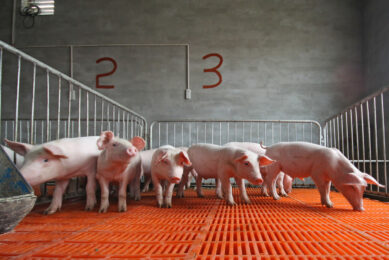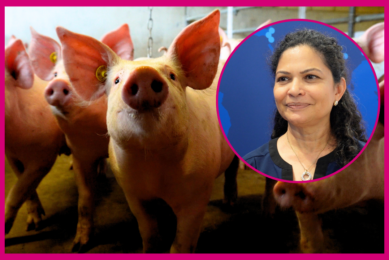Rice for piglets
Rice has long been recognised for its gastrointestinal soothing properties. Diarrhoeas in children are still being addressed with just boiled rice in many parts of the world. But, so far we have had only speculations of how rice improves health and which components of it are responsible for such effects.
Rice has long been recognised for its gastrointestinal soothing properties. Diarrhoeas in children are still being addressed with just boiled rice in many parts of the world. But, so far we have had only speculations of how rice improves health and which components of it are responsible for such effects.
Very recently, in the Journal of the Science of Food & Agriculture, a Japanese research team led by Dr Jamagishi reported that rice, but not wheat, is able to enhance the ‘Complement System’ of the immune system. This brings to me dear memories of my graduate years long time ago, and I believe some basic immunology is unavoidable here if we’re to fully understand the significance of this finding.
So, please bear with me as I did back then…
The Complement System
The Complement System is an integral part of our immune system. It is not antigen (pathogen) specific, but when it is triggered it enhances and multiplies the response of our specific immune system. For those wanting more details, the Complement System, in the form of zymogen proteins, cleaves proteins circulating in the blood releasing thus cytokines.
The end result is a massive amplification of our immune response that kills and clears from the organism invading pathogens. So, anything that stimulates the Complement System is beneficial; in measure of course because overactivation can bring its own problems (some believe this is one of the causes of arthritis).
Medicinal herb
Back to the Japanese study. The above research team did comparative studies with Glycyrrhiza uralensis, rice, and wheat. The first is a medicinal herb with well known immunological properties. Rice and wheat, of course, are common staple cereals.
It was discovered that the water-soluble polysaccharides in rice have similar properties as the polysaccharides in glycyrriza. Wheat had no such effect! Lesson number one: all polysaccharides are not created equal! Lesson number two: rice polysaccharides clearly stimulate the activation of the Complement System.
Better performance
The above findings verify the experimental and practical observations in animals, and especially in young ones, in which when pigs are fed rice-based diets they almost always perform better than others fed maize-, wheat-, or barley-based diets. It follows the effect of rice should be expected stronger in disease-challenged animals, if we’re to accept this mode of action through the immune system.
This probably also explains why in some trials, rice-fed animals did not fare any better than those fed diets based on other cereals. They were simply not in need of any immune-stimulating action!
This is an exciting discovery, with implications in human and animal nutrition and health. More research is now required to transfer these findings into applicable products! Of course, for our pigs, feeding those expensive pre-starter diets with rice now makes a bit more sense, no?











